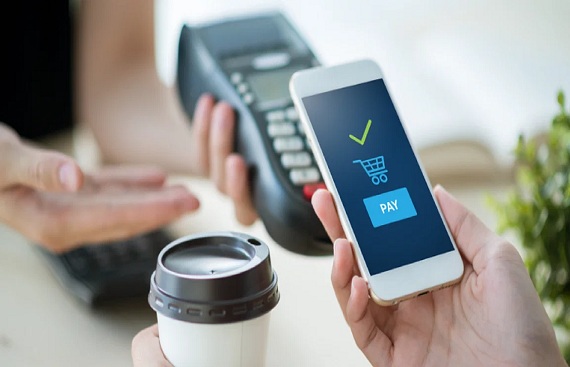Beyond Cash, Evolution of Mobile Payments & Digital Wallets

The one thing that no one in the modern world can live without is mobile payments and digital wallets, sometimes referred to as UPI payments. How we manage our financial transactions has significantly transformed in the last ten years. As game-changers, mobile payments and digital wallets have changed how we pay, purchase, and engage with businesses by making traditional payment methods simple, safe, and convenient. The development of mobile payments and digital wallets, from their modest beginnings to their widespread use, has not only rushed the payment process but also welcomed a new era of comfort, security, and financial inclusion. We'll study the evolution of mobile payments and digital wallets, we'll examine the development of mobile payments and digital wallets and identify the significant turning points and talk about how they affect our day-to-day activities.
The Role of NFC in Online Payments
Since everyone uses online payments, what is NFC, and is anyone familiar with it? In essence, NFC when expanded its Near Field Communication technology means it provides easy data sharing between compatible devices by enabling short-range wireless connections. This technology has revolutionized many aspects of our lives, particularly contactless payments. Users can conduct safe transactions without using physical currency or credit cards with a quick tap or wave of a smartphone or other NFC-enabled device. NFC is used in access control, transportation systems, information sharing between devices, and payments. Due to its smooth and user-friendly design, NFC has become a crucial element of our daily routines, simplifying and transforming how we connect with the world around us.
Integration with E-commerce and Online Services
![]()
Consumers are choosing mobile payments as their preferred means of completing purchases due to smartphones' convenience and the growing availability of these devices. Since customers can now make purchases with only a few clicks on their devices, e-commerce companies have responded by integrating smooth mobile payment solutions. By eliminating the need to continually enter the credit card information, digital wallets, with their safe storing of payment information, further improve the user experience. Additionally, digital wallets make it easy to transact quickly and securely on various websites, including subscription-based services, food delivery, and ride-sharing. This connection makes online purchasing and service consumption more seamless and user-friendly while improving security and lowering the danger of data breaches.
In-Store Adoption and Contactless Payments
When we visit a store, the first thing we check is whether they have online payment. As contactless payments become more widely accepted, mobile payments have significantly increased. Then, as individuals searched for safer options for physical cash and card purchases, the global epidemic accelerated the shift to contactless transactions even further. Businesses worldwide swiftly adjusted, adopting NFC-enabled payment terminals and QR code systems, further consolidating the position of mobile payments in everyday commerce and enabling secure, contactless payment.
Peer-to-Peer Payments and Social Integration
Peer-to-peer (P2P) payment networks have become increasingly popular, making sending and receiving money through mobile devices simple. The way we divide bills, share expenditures and reimburse one another has been revolutionized by apps like PayPal, Venmo, Zelle, and Google Pay. Additionally, social integration offers chances for fundraising activities, group payments, and shared expenses among friends. P2P payments and social integration encourage financial inclusion, ease, and a sense of community by fusing the worlds of finance and social connectivity.
Regulatory Landscape and Compliance Challenges
As these technologies continue to gain popularity, the legal environment and compliance issues relating to mobile payments and digital wallets have risen to the fore. Striking a balance between promoting innovation and ensuring consumer protection is challenge regulators and governments worldwide are attempting to resolve. Data security, privacy, anti-fraud measures, and anti-money laundering practices are significant areas of concern. As regulations change and become more complex nationally and internationally, compliance challenges increase. Mobile payment service providers and digital wallet platforms must manage a complicated web of rules, including Know Your Customer (KYC) standards, Payment Card Industry Data Security Standard (PCI DSS) compliance, and adherence to regional financial rules. Upholding these rules, putting strong security measures in place, and establishing effective risk management protocols are essential for mobile payments and digital wallet businesses.
Guarding Security and Privacy in the Era of Emerging Technologies
![]()
Future new technologies in the area of mobile payments and digital wallets must prioritize security and privacy. The need to address potential weaknesses and protect private user data is growing as these cutting-edge payment solutions continue to develop. Enhancing security measures requires technological advancements in biometric authentication, encryption, and tokenization. Facial or fingerprint recognition are examples of biometric authentication offering additional security against unauthorized access. Encryption ensures that transactional data is safe while being transmitted, and tokenization swaps out sensitive payment data for one-of-a-kind tokens to lower the chance of data breaches. Regulatory organizations also adopt strict rules to safeguard user privacy and enforce data protection practices. The future of digital wallets and mobile payments is striking a delicate balance between convenience and robust security, providing users with seamless transactions while maintaining their trust in the safety of their personal and financial information.
Conclusion
The development of mobile payments and digital wallets has fundamentally changed how we make payments, reshaping the traditional trade landscape. These technologies have provided ease, security, and financial inclusion, from the earliest NFC-enabled cellphones to the global development of mobile payments. We can anticipate more integration, improved functionality, and ongoing innovation as they develop, further transforming the future of banking and trade. Thanks to mobile payments and digital wallets, we can now complete transactions with only a touch or a flick of the finger.
